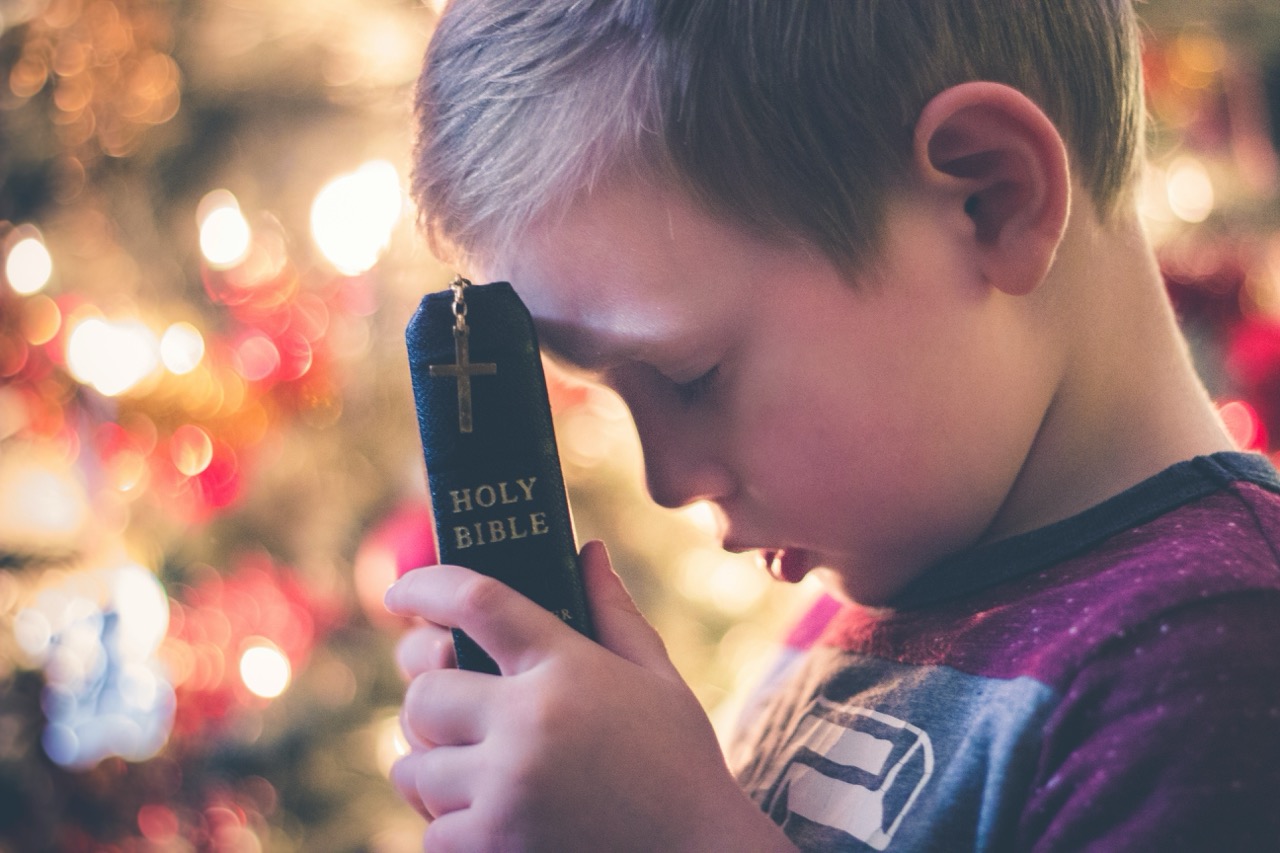How to Recognize and Avoid Sin

In a world where moral ambiguity often blurs the lines between right and wrong, the challenge of recognizing and avoiding sin becomes ever more crucial for personal growth and integrity. Sin can manifest in various forms, from subtle compromises in our daily choices to significant moral failures. By understanding the nature of sin and cultivating a mindset grounded in virtue, we can navigate our lives with clarity and purpose. This article provides a reflective exploration of how to recognize and avoid sin, offering insights and strategies for living a life aligned with our highest values.
Understanding the Nature of Sin in Our Lives
Sin is often conceptualized as a deviation from moral and ethical standards, but its roots run deeper than mere actions. It is a state of being that can distort our intentions and cloud our judgment. Understanding sin involves recognizing that it is not only about breaking rules but also about the impact those actions have on ourselves and others. By perceiving sin as a relational breach—one that affects our connections with ourselves, our communities, and the divine—we can start to appreciate the profound seriousness of our choices.
Moreover, sin introduces a cycle of disconnection that, if left unexamined, can lead to further moral erosion. Each transgression can create a rift between who we are and who we aspire to be. This understanding urges us to approach sin not with condemnation but with a call to self-awareness and transformation. When we recognize sin’s nature, we empower ourselves to confront it honestly, embracing the opportunity for growth and reconciliation.
The Importance of Self-Reflection and Awareness
Self-reflection is a powerful tool in identifying the presence of sin in our lives. By cultivating a habit of introspection, we can examine our thoughts, actions, and motivations more closely. This process requires courage and honesty, as we must confront the parts of ourselves that may be tempted toward moral compromise. Regularly setting aside time for reflection allows us to assess our alignments with our values and to identify any dissonance in our choices.
Awareness is the first step toward change. As we become more attuned to our internal dialogues and behavioral patterns, we can recognize when we stray from our principles. Journaling, meditation, or even conversations with trusted friends can serve as catalysts for deeper self-awareness. By committing to this reflective practice, we create a space for personal accountability and growth, enabling us to navigate life’s complexities with greater moral clarity.
Cultivating a Mindset of Virtue and Integrity
To avoid sin, we must actively cultivate a mindset rooted in virtue and integrity. This begins with identifying the values that resonate with us—such as honesty, kindness, and compassion—and making a conscious effort to embody them in our daily lives. When we prioritize these virtues, we lay a solid foundation that can guide our decisions and actions, even in the face of temptation. Virtue becomes our compass, steering us toward choices that reflect our true selves.
Furthermore, integrity involves a commitment to aligning our actions with our beliefs. It requires us to speak truths, stand by our convictions, and act consistently with our moral standards. As we strive for integrity, we deepen our understanding of right and wrong, empowering ourselves to resist the allure of sin. Cultivating this mindset is an ongoing journey, but each step we take toward virtue reinforces our capacity to choose wisely and live authentically.
Recognizing the Subtle Signs of Moral Compromise
Moral compromise often begins in subtle ways, manifesting as small deviations from our established values. These initial slips can seem insignificant, yet they can lead to larger issues over time. Being vigilant about these early signs is essential; they can include justifying questionable actions, ignoring our gut feelings, or dismissing the advice of those we respect. By paying attention to these indicators, we equip ourselves to address potential issues before they escalate into more significant moral failures.
Listening to our conscience is crucial in recognizing these subtle signs. It often whispers to us when we are about to stray from our values, urging us to pause and reflect. Honoring that inner voice requires us to be attuned to our feelings and the emotional cues that accompany our decisions. By cultivating this sensitivity, we can intercept the path to moral compromise and make choices that honor our integrity and uphold our commitments to ourselves and others.
The Role of Community in Identifying Sinful Behaviors
Community serves as a vital support system in our journey to recognize and avoid sin. Engaging with others who share our values creates an environment of mutual accountability and encouragement. Within a community, we can openly discuss our struggles, seek guidance, and receive feedback on our behaviors. The shared commitment to moral living fosters a culture where sin is acknowledged and addressed collectively, rather than hidden in isolation.
Furthermore, the diverse perspectives within a community can help illuminate blind spots in our understanding of sin. Others may notice patterns or behaviors that we are too close to see ourselves. By inviting input from trusted friends or mentors, we can gain valuable insights that encourage us to reflect and adjust our actions accordingly. This communal approach not only strengthens our resolve but also deepens our relationships, allowing us to grow together in virtue and understanding.
Developing Spiritual Discernment Through Prayer
Prayer is a powerful practice that fosters spiritual discernment, enabling us to navigate the complexities of life with greater clarity. Through prayer, we cultivate a deeper connection with the divine, seeking guidance and wisdom in our decision-making processes. This dialogue opens our hearts and minds, allowing us to align our choices with our higher values and aspirations. As we engage in prayer, we become more receptive to the subtle nudges and insights that help us recognize sin in our lives.
Moreover, prayer provides a space for reflection and repentance. In moments of stillness and contemplation, we can confront our shortcomings, seek forgiveness, and renew our commitment to living virtuously. This process of spiritual discernment empowers us to differentiate between fleeting temptations and enduring values, enhancing our ability to resist sin. By integrating prayer into our daily lives, we cultivate a habit of seeking divine guidance, reinforcing our moral compass in times of uncertainty.
Identifying Temptations in Daily Life and Choices
Temptations are an inevitable part of the human experience, often presenting themselves in the form of fleeting desires or societal pressures. To effectively recognize and avoid sin, it is essential to identify these temptations as they arise in our daily lives. This involves being aware of triggers that lead us away from our principles, whether they stem from interpersonal relationships, work environments, or media influences. By acknowledging these sources of temptation, we can develop strategies to mitigate their impact.
Additionally, understanding our personal vulnerabilities is key in recognizing the temptations that may lead us astray. Reflecting on past experiences helps us identify patterns in our behavior and discern which situations may compromise our values. Armed with this knowledge, we can create proactive measures to steer clear of temptation, such as setting boundaries, avoiding certain environments, or seeking support from friends and family. By taking ownership of our choices, we empower ourselves to build a life that aligns with our moral convictions.
The Impact of Environment on Our Moral Decisions
The environments we inhabit play a significant role in shaping our moral choices. Surrounding ourselves with individuals who share our values and inspire us to pursue virtue can fortify our resistance to sin. Conversely, environments that normalize unethical behavior or dismiss moral considerations can lead us down a slippery slope of compromise. Recognizing the influence of our surroundings is essential in cultivating a life of integrity, as it challenges us to evaluate the contexts in which we operate.
Moreover, creating a supportive environment requires active participation. By fostering spaces that prioritize ethical behavior—whether in our homes, workplaces, or communities—we encourage ourselves and others to engage in moral living. This might involve establishing clear expectations, promoting open discussions about ethics, or simply being a positive role model. As we consciously shape our environments, we empower ourselves to make choices that resonate with our values, ultimately minimizing the risk of falling into sin.
Strategies for Strengthening Personal Boundaries
Establishing and maintaining personal boundaries is a crucial aspect of avoiding sin. Boundaries help us protect our values and prevent situations that may lead to moral compromise. By defining what is acceptable and unacceptable in our interactions, we create a framework that reinforces our integrity. This may involve setting limits on time spent with negative influences, clarifying our stance on ethical dilemmas, or asserting our needs in relationships.
Furthermore, strengthening personal boundaries requires courage and self-awareness. It often means saying "no" to pressures that might lead us into situations contrary to our values. By practicing assertiveness and communicating our limits clearly, we foster an environment where our convictions are respected. This not only enhances our moral fortitude but also empowers others to respect their own boundaries, creating a ripple effect of integrity and virtue in our communities.
The Power of Accountability in Our Journeys
Accountability plays a pivotal role in our efforts to recognize and avoid sin. When we share our struggles and aspirations with trusted individuals, we create a support system that encourages us to stay true to our values. This relationship fosters honesty and transparency, as we open ourselves to constructive feedback and guidance. Knowing that others are invested in our journey can motivate us to make choices aligned with our principles, even when faced with temptation.
Additionally, accountability involves a commitment to mutual growth. By engaging in meaningful conversations about our moral challenges, we not only enhance our own understanding but also contribute to the development of others. This collective pursuit of virtue strengthens our resolve and cultivates a sense of community, where we uplift one another in our quest for integrity. Embracing accountability transforms our journey into a shared experience, reinforcing our commitment to living a life free from sin.
Forgiveness: A Pathway to Healing and Growth
Forgiveness is an integral aspect of recognizing and avoiding sin, both in ourselves and in others. It allows for the acknowledgment of our shortcomings without succumbing to despair or self-condemnation. When we accept that we are all fallible beings, we can approach our mistakes with compassion rather than shame. This perspective not only facilitates personal healing but also fosters a sense of resilience as we learn from our transgressions.
Moreover, extending forgiveness to others is equally important. Holding onto resentment can hinder our growth and create a toxic environment that perpetuates sin. By choosing to forgive, we release the burdens of anger and disappointment, allowing ourselves to move forward in our journey toward virtue. This act of grace opens the door to reconciliation and understanding, paving the way for deeper connections and a renewed commitment to moral living.
Embracing a Life of Purpose and Moral Clarity
Ultimately, embracing a life of purpose and moral clarity is the most effective way to recognize and avoid sin. When we live with intention, guided by our values and aspirations, we strengthen our ability to make ethical choices. This clarity provides a solid foundation on which to build our lives, helping us navigate challenges with resilience and integrity. Engaging in activities that resonate with our purpose cultivates a sense of fulfillment that minimizes the allure of sin.
As we commit to this path, we become beacons of moral clarity in our communities, inspiring others to reflect on their values and choices. By embodying a life of purpose, we not only uplift ourselves but also contribute to the collective pursuit of virtue. Through our actions and choices, we can create a ripple effect of integrity, encouraging those around us to join us in living lives that reflect our highest ideals.
Recognizing and avoiding sin is an ongoing journey that requires commitment, self-reflection, and connection with others. By understanding the nature of sin, cultivating a mindset of virtue, and embracing the power of community, we can navigate our lives with greater moral clarity. As we seek to align our actions with our values, we embark on a transformative path that not only enriches our own lives but also inspires those around us. Ultimately, by living purposefully and authentically, we can contribute to a world that reflects the beauty of integrity and the power of love.



